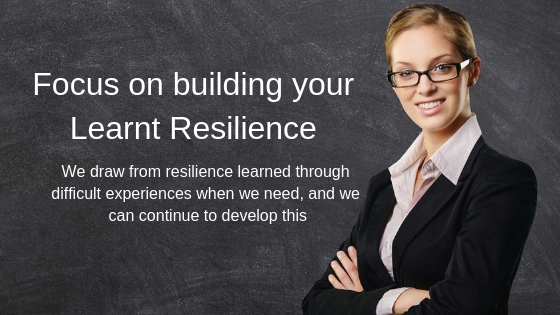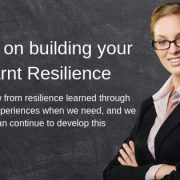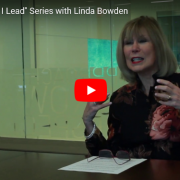Resilience – How Can We Cultivate Resiliency (Day 4)

How Can We Cultivate Resiliency?
Part 1: Start With Yourself
We have learned two main things from researching and speaking with individuals on the topic of resiliency:
- Resiliency is important and is widely recognized as an essential personal quality
- Not enough is being done in colleges or the workplace to help people develop a resilient mindset
This brings us to our main question- how? How do we cultivate resiliency? We have broken this down into two parts. In this post, we discuss how we can develop resiliency in ourselves and in the next and final post, we discuss how resiliency can be cultivated in colleges and the workplace.
Why You Should Start With Yourself
Resilience enables us to develop techniques that allow us to overcome challenges and adversity (link: https://www.counselling-directory.org.uk/counsellor-articles/the-importance-of-building-resilience) We should focus on starting with ourselves because we are most in-tune with what our stressors are and what works best for us to handle those situations. There are several types of resilience that exist in ourselves:
- Inherent resilience- natural resilience we are born with
- Adapted resilience- resilience that appears are different stages of our lives and that is activated through difficult experiences in our lives e.g. being laid off, end of a relationship etc.
- Learnt resilience- resilience that is built up over time and that we learn to activate through difficult experiences. We draw from this when we need, and we can continue to develop this.
We should be focused on building our learnt resilience. Below are some tips on how you can do this.
10 Ways You Can Build Resilience
These tips are based on the book, ‘Resilience: The Science of Mastering Life’s Greatest Challenges’ by Dennis Charney and Steven Southwick. Their book presents 10 factors that can help anyone become more resilient. These factors are based on research and true stories of individuals that have overcome extraordinary odds. (Link: https://news.yale.edu/2018/05/03/resilience-science-mastering-lifes-greatest-challenges)
- Build Optimism: This is traits based and situational but the idea is to focus on positive things around you and to reframe all negative thoughts. Identify what makes you happy and brings positivity in you and engage in altruistic pursuits.
- Redefine Fear: Fear is an opportunity and a certain amount of fear is adaptive. The unknown is what causes us to fear but we need to understand that fear is ubiquitous, and no one escapes its grip. The best way around fear is through it and to conquer fear, one must face fear.
- Value System: Strong ethics and altruism are strong pillars of a value system. Aristotle wrote in his book, “Nicomachean Ethics,” that we become by doing just acts. The idea is that the more we do something we know is right, the more we develop moral courage.
- Draw On Your Faith: Our faith whether religious or otherwise helps us be mindful and divert our thoughts to something bigger than ourselves. As written in the Bhagavat Gita, “The mind is restless, turbulent, violent and trying to control the mind is like trying to control the wind.” Prayer and faith teaches us to use our minds better than letting our minds use us.
- Social Support: Reach out to your family and friends during stressful situations and give back as much as you can. Find networks where you can meet like-minded people to build the support network you need.
- Identify a Role Model: Who do you admire? What do they do right? Who do you consider a negative role model? Observe the people around you and figure out what you people believe do well and people don’t to adopt to your personal behavior when handling stress.
- Train Your Brain: Train your brain to accept new challenges and consider a learning opportunity.
- Sleep Enough: Improper sleep habits can lead to various mental health issues can contribute to a lack of resiliency. (Link: https://www.health.harvard.edu/newsletter_article/sleep-and-mental-health)
- Enhance Cognitive & Emotional Flexibility: Developing these skills allow us to accept change as the only constant in our lives and allows us to accept difficult situations which makes us move on faster.
- Find Your Purpose: Identifying meaning in your life is a sign of growth and helps you keep grounded.
Here are some additional resources you can use in your path to increased resilience!
- Five Science-Backed Strategies to Build Resilience: https://greatergood.berkeley.edu/article/item/five_science_backed_strategies_to_build_resilience
- Developing Resilience: https://www.mindtools.com/pages/article/resilience.htm
- How to Build Your Resilience: https://www.psychologytoday.com/us/blog/how-be-yourself/201709/how-build-your-resilience
About the Author:
Roshni Ramaswamy has recently graduated from Georgia Institute of Technology, majoring in Chemical and Biomolecular Engineering and a proud mentee of the WINGS Signature Program. She is a Project Engineer at Environmental Planning Specialists. She enjoys sharing her perspectives on mentoring, resilience, academic life, professional development among a myriad other topics. Follow Roshni at the link shared for her viewpoints.


